Ditapis dengan
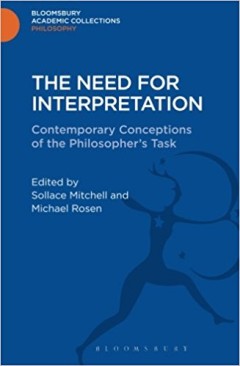
The Need for Interpretation: Contemporary Conceptions of the Philosopher's Task
The Need for Interpretation expresses the growing reaction within the ranks of analytically-trained philosophers against the professed aims of current Anglo-American philosophy. The contributors challenge received dogmas on different philosophical topics, covering central issues from both Anglo-American and Continental traditions. Written in non-sectarian language for non-specialists, students …
- Edisi
- -
- ISBN/ISSN
- 0485112248
- Deskripsi Fisik
- viii + 182 pg.; 21 cm.
- Judul Seri
- -
- No. Panggil
- 190 NEE n
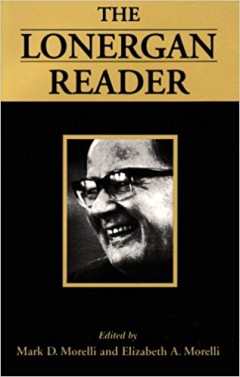
The Lonergan Reader
Bernard Lonergan's work is both original and comprehensive. It can be grasped only by working one's way slowly and carefully through his major writings. In order to make Lonergan's unique contribution to philosophy and theology accessible to students and teachers, the editors of The Lonergan Reader have brought together in a single volume selections that represent the depth and breadth of his t…
- Edisi
- -
- ISBN/ISSN
- 0802042511
- Deskripsi Fisik
- xi + 624 pg.; 23 cm.
- Judul Seri
- -
- No. Panggil
- 191 LON l

Alasdair MacIntyre: Critic of Modernity
This book is the first full length account of the significance of MacIntyre's work for the social sciences. MacIntyre's moral philosophy is shown to provide the resources for a powerful crititque of liberalism. His dicussion of the managerist and emotivist roots of modern culture is seen as the inspiration for a critical social science of Modernity
- Edisi
- -
- ISBN/ISSN
- 041504426X
- Deskripsi Fisik
- viii + 224 pg.; 21,5 cm.
- Judul Seri
- -
- No. Panggil
- 192 McM a
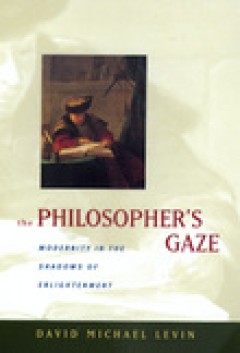
The Philosopher's Gaze: Modernity in the Shadows of Enlightenment
David Michael Levin's ongoing exploration of the moral character and enlightenment-potential of vision takes a new direction in The Philosopher's Gaze. Levin examines texts by Descartes, Husserl, Wittgenstein, Nietzsche, Heidegger, Benjamin, Merleau-Ponty, and Lévinas, using our culturally dominant mode of perception and the philosophical discourse it has generated as the site for his critical…
- Edisi
- -
- ISBN/ISSN
- 0520217802
- Deskripsi Fisik
- ix + 493 pg.; 23,5 cm.
- Judul Seri
- -
- No. Panggil
- 190 LEV p
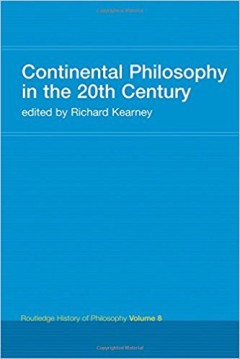
Continental Philosophy in the 20th Century
Continental philosophy is one of the twentieth century's most important and challenging philosophical movements. This major volume includes fourteen chapters on its major representatives and schools, including phenomenology, existentialism and postmodernism.
- Edisi
- -
- ISBN/ISSN
- 0415056292
- Deskripsi Fisik
- xlv + 524 pg.; 23,5 cm.
- Judul Seri
- Routledge History of Philosophy Volume 8
- No. Panggil
- 190 COn c
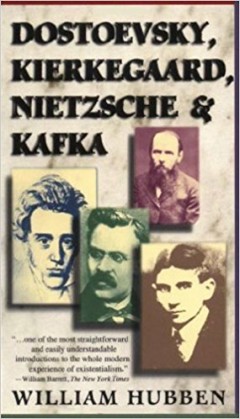
Dostoevsky, Kierkegaard, Nietzsche and Kafka
How four of Europe’s most mysterious and fascinating writers shaped the modern mind. Dostoevsky, Kierkegaard, Nietzsche, and Kafka were all outsiders in their societies, unable to fit into the accepted nineteenth-century categories of theology, philosophy, or belles lettres. Instead, they saw themselves both as the end products of a dying civilization and as prophets of the coming chaos of…
- Edisi
- -
- ISBN/ISSN
- -
- Deskripsi Fisik
- 188 pg.; 18 cm.
- Judul Seri
- -
- No. Panggil
- 190 HUB d
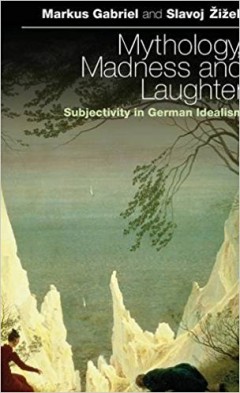
Mythology, Madness, and Laughter: Subjectivity in German Idealism
Mythology, Madness and Laughter: Subjectivity in German Idealism explores some long neglected but crucial themes in German idealism. Markus Gabriel, one of the most exciting young voices in contemporary philosophy, and Slavoj Žižek, the celebrated contemporary philosopher and cultural critic, show how these themes impact on the problematic relations between being and appearance, reflection an…
- Edisi
- -
- ISBN/ISSN
- 9781441191052
- Deskripsi Fisik
- vi + 202 pg.; 26,5 cm.
- Judul Seri
- -
- No. Panggil
- 141.0943 GAB m

The Parallax View
The Parallax View is Slavoj Žižek's most substantial theoretical work to appear in many years; Žižek himself describes it as his magnum opus. Parallax can be defined as the apparent displacement of an object, caused by a change in observational position. Žižek is interested in the "parallax gap" separating two points between which no synthesis or mediation is possible, linked by an "impos…
- Edisi
- -
- ISBN/ISSN
- 0262240513
- Deskripsi Fisik
- 429 pg.; 28 cm.
- Judul Seri
- -
- No. Panggil
- 199.4973 ZIZ p
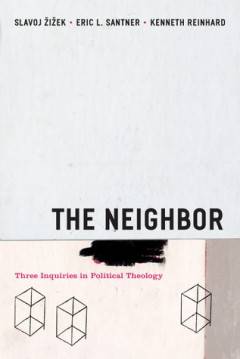
The Neighbor: Three Inquiries in Political Theology
In Civilization and Its Discontents, Freud made abundantly clear what he thought about the biblical injunction, first articulated in Leviticus 19:18 and then elaborated in Christian teachings, to love one's neighbor as oneself. "Let us adopt a naive attitude towards it," he proposed, "as though we were hearing it for the first time; we shall be unable then to suppress a feeling of surprise and …
- Edisi
- -
- ISBN/ISSN
- 0226707385
- Deskripsi Fisik
- 190 pg.; 26 cm.
- Judul Seri
- -
- No. Panggil
- 177.7 ZIZ n

 Karya Umum
Karya Umum  Filsafat
Filsafat  Agama
Agama  Ilmu-ilmu Sosial
Ilmu-ilmu Sosial  Bahasa
Bahasa  Ilmu-ilmu Murni
Ilmu-ilmu Murni  Ilmu-ilmu Terapan
Ilmu-ilmu Terapan  Kesenian, Hiburan, dan Olahraga
Kesenian, Hiburan, dan Olahraga  Kesusastraan
Kesusastraan  Geografi dan Sejarah
Geografi dan Sejarah